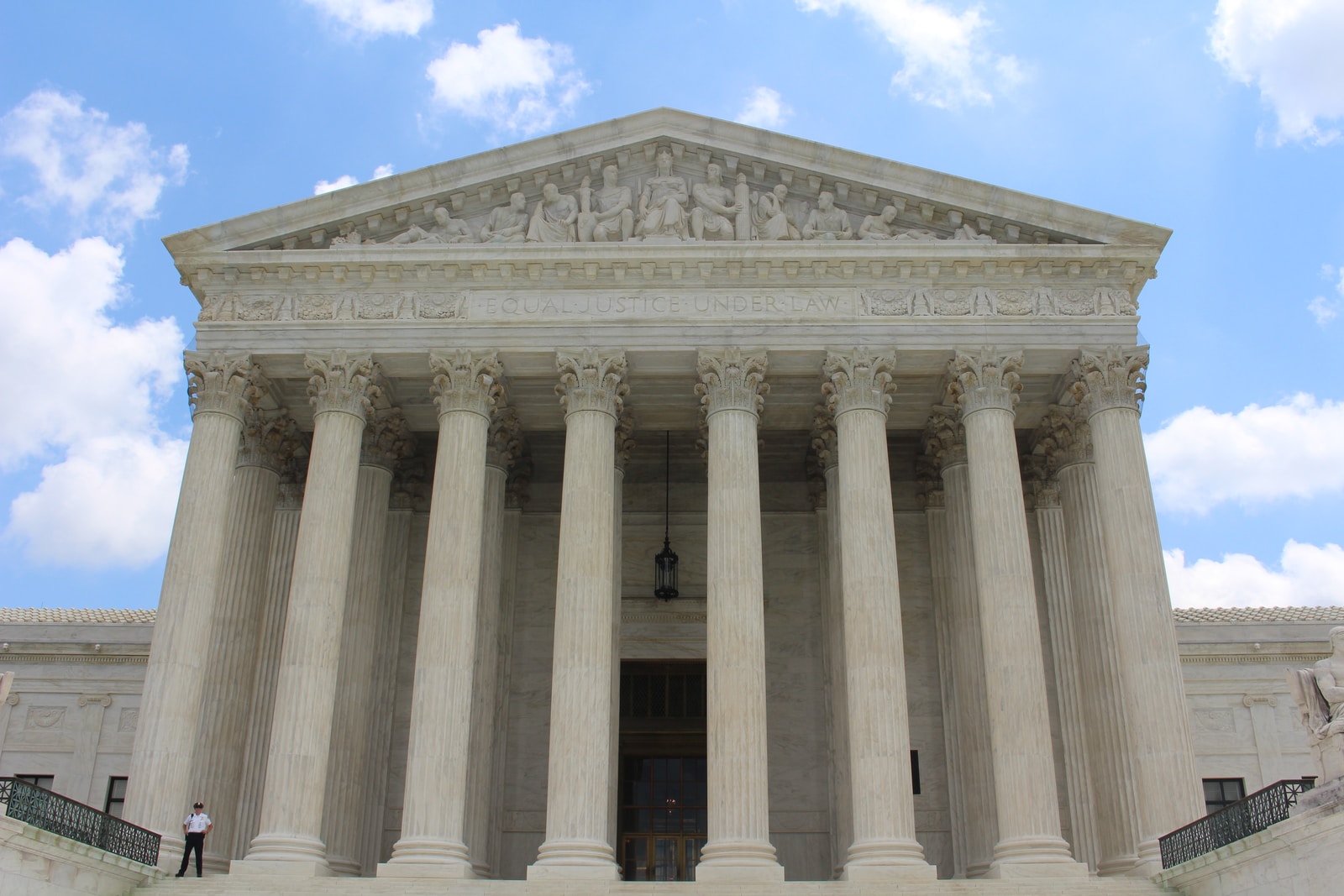Justice Breyer’s Balanced Copyright Opinions

Update: On February 24, 2022, Justice Breyer wrote the opinion for the Court in Unicolors v. H&M in favor of the copyright owner. He found that a copyright registration application should not be rejected on the basis of an inaccuracy in the application if the inaccuracy was the result of a good faith mistake of fact or law. This ruling in favor of the copyright owner provides another example of Justice Breyer’s even-handed approach in copyright cases.
Supreme Court Justice Stephen Breyer’s announcement that he will retire at the end of this term has prompted reflection on his legacy for copyright law. Not surprisingly, the commentary has centered on his most recent copyright opinion for the Court in Google v. Oracle. While this opinion solidified his reputation for being one of the more liberal Justices on copyright matters, a review of all the copyright opinions he drafted while on the Court reveals a nuanced understanding of the Copyright Act consistent with the balance of interests intended by Congress and embodied in the Constitution’s Copyright Clause. Significantly, several of his opinions favored the copyright owner, most notably ABC v. Aereo.
In Eldred v. Ashcroft (2003), Justice Breyer wrote a dissenting opinion arguing that the Sonny Bono Copyright Term Extension Act, which extended the copyright term by twenty years, violated the Constitution’s Copyright Clause. In Justice Breyer’s view, the Act made “the copyright term not limited, but virtually perpetual.”
In MGM v. Grokster (2005), Justice Breyer joined the unanimous opinion by Justice Souter holding that “the distributor of a dual-use technology may be liable for the infringing activities of third parties where he or she actively seeks to advance the infringement.” At the same time, Justice Breyer wrote a detailed concurring opinion explaining why the Court’s decision did not undermine the Court’s decision in Sony v. Universal City Studios, and responding to Justice Ginsburg’s concurring opinion that called for a narrowing of Sony.
In Golan v. Holder (2012), Justice Breyer wrote a dissenting opinion arguing that the Uruguay Round Agreement Act violated the Constitution’s Copyright Clause by restoring copyright to works in the public domain. Because it applied only to a specific set of works already created and in the public domain, the Act did not further the objectives of the copyright law.
In Kirtsaeng v. Wiley (2013), Justice Breyer wrote the majority opinion holding that the first sale doctrine applied to works produced outside the United States with the authorization of the copyright owner. Justice Breyer reached this conclusion through a careful examination of the history of the first sale doctrine and a careful reading of section 109(a) of the Copyright Act.
In Petrella v. MGM (2014), Justice Breyer wrote a dissenting opinion arguing that the laches doctrine should apply to copyright cases. Justice Breyer refuted the Court’s decision to deny application of this equitable principle in copyright cases.
In ABC v. Aereo (2014), Justice Breyer wrote the majority opinion holding that a service that enabled the streaming of over-the-air television broadcasts infringed the public performance right. Although he ruled in favor of the copyright owners, he drafted the decision narrowly so that it applied only in the context of over-the-air television and did not more broadly implicate cloud computing. See here and here for DisCo posts on Justice Breyer’s opinion.
In Star Athletica v. Varsity Brands (2017), Justice Breyer wrote a dissenting opinion arguing that the design of a cheerleading uniform did not qualify for copyright protection. He asserted that the design features Varsity sought to protect were not capable of existing independently of the utilitarian aspect of the uniform.
In Allen v. Cooper (2020), Justice Breyer joined the majority finding that the Copyright Remedy Clarification Act did not meet the Constitution’s requirements for the abrogation of state sovereign immunity. However, in a concurring opinion, Justice Breyer stated that while he concurred with the judgment, he did so only because he felt bound by an earlier Supreme Court decision, Seminole Tribe of Fla. v. Florida, which he felt was wrongly decided. In his view, a state should not be able to escape liability for copyright infringement.
In Google v. Oracle (2021), Justice Breyer wrote the majority opinion finding that fair use permitted Google’s replication of Java declaring code in the Android application programming interface. See here, here, and here for DisCo posts on Justice Breyer’s opinion.
Additionally, Justice Breyer joined opinions written by other Justices that favored copyright owners. In Georgia v. Public Resources (2020), Justice Breyer joined both Justice Thomas’ and Justice Ginsburg’s dissents against the majority ruling that copyright protection did not extend to the Georgia legislature’s official annotations of the Georgia code.
Thus, in two of the nine copyright cases in which he wrote opinions (Aereo and Grokster), Justice Breyer sided with the copyright owner. In a third case (Allen), Justice Breyer would have ruled in favor of the copyright owner but felt constrained by a precedent with which he disagreed. In all three cases involving digital technology (Aereo, Google, and Grokster), Justice Breyer’s opinions reflected an understanding of the real-world impact of copyright on innovation and competition. Justice Breyer’s principled, balanced approach to copyright law will be missed.







